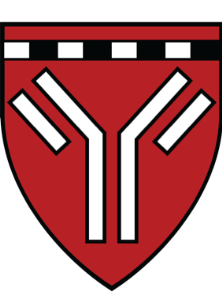Directions & Contact Information
Division of Medical Sciences
Harvard Medical School
260 Longwood Avenue
TMEC 435
Boston, MA 02115
(617) 432-0162
view map of the Longwood Medical Area

Ph.D. Programs

The interdepartmental Bioinformatics and Integrative (BIG) PhD program trains future leaders in the field of bioinformatics and genomics. Our mission is to provide BIG graduate students with the tools to conduct original research and the ability to develop novel approaches and new technologies to address fundamental biological questions.
BBS is an interdepartmental graduate training program in cellular and molecular biology. BBS faculty members are drawn from all of the basic science departments of Harvard Medical School –Biological Chemistry and Molecular Pharmacology (BCMP), Cell Biology, Stem Cell and Regenerative Biology, Genetics, Microbiology and Immunobiology, Neurobiology and Systems Biology – and from many of Harvard’s affiliated teaching hospitals. BBS has also incorporated faculty from the Faculty of Arts and Sciences (FAS) as part of its effort to build new initiatives in graduate training.
The BBS graduate research training is interdisciplinary, with a concentration in one or more of the following areas: biochemistry and proteomics, cell and molecular biology, computational biology, developmental biology, genetics and genomics, human biology and disease, immunobiology, microbial biology and pathogenesis, molecular neurosciences, physiology, pharmacology, regenerative biology and structural biology. The methods and experimental approaches used to address questions within these areas range from the techniques of molecular biology, protein chemistry, cell biology and biophysics to those of molecular and developmental genetics.
 Immunology
ImmunologyThe purpose of the Immunology Program is to provide education leading to a Ph.D. in Immunology. This Program is under the responsibility of the Committee on Immunology at Harvard. The Committee includes over 110 faculty representing a broad area of research interests including transplantation, neuro-immunology, autoimmunity, stem cell biology, infection and immunity, human translational immunology, tumor immunology, immunobiology and mucosal immunity.
Our goal is to educate scientists in investigative and academic medicine, preparing them to contribute to immunological research with a full awareness of the potential impact of immunology. Our program combines an education in basic biology, a sophisticated training in immunology, and exposure to the immunological and non-immunological problems of disease.
 Neuroscience
NeuroscienceThe Harvard PhD Program in Neuroscience, (known as PiN), spans the neuroscience community throughout Harvard University. The Program provides mentoring and advising to a close and supportive community of students who carry out PhD thesis research in laboratories in the Harvard Medical School Neurobiology department, in Harvard affiliated Hospitals, or in the Faculty of Arts and Sciences. Program students come from diverse scientific, personal and cultural backgrounds. More than 100 faculty members provide exciting and rigorous research training in all areas of neuroscience, and our 100+ students take full advantage of these opportunities.
 Speech and Hearing Bioscience and Technology (SHBT)
Speech and Hearing Bioscience and Technology (SHBT)Harvard SHBT is an innovative, interdisciplinary doctoral program that trains researchers in basic science, translational medicine, and engineering approaches to the field of human communication. SHBT faculty and students pursue research questions related to auditory neuroscience, signal processing, perception and cognition, and disorders of speech and language, combining rigorous training in a range of rigorous scientific disciplines with valuable exposure to clinical practice.
We are a tight-knit research community including more than 65 faculty members and roughly 40 students at various stages in their doctoral work, with freedom to operate out of more than 30 different labs at Harvard, MIT, Boston University and the Harvard teaching hospitals. Come join our community!
 Virology
VirologyIt is an exciting time to study virology! In the last decade, we've seen new viruses—SARS, H1N1 influenza, and Nipah viruses among them—emerging around the world; Ebola Chikungunya, and West Nile viruses have re-emerged; and the AIDS epidemic continues to sweep across sub-Saharan Africa and parts of Asia. New vaccines for HIV, smallpox, avian influenza and genital herpes are sorely needed. New antivirals for Dengue, hepatitis C and HIV viruses are also desperately needed. The role of such viruses as Merkel cell polyoma, papilloma, Kaposi’s sarcoma and Epstein-Barr virus in human cancer highlight challenges to prevent and treat these diseases.
Researchers at Harvard University are working on all these biomedical problems. They conduct basic research defining new molecular structures of viruses and virus-encoded enzymes, new mechanisms within cells for molecular and organelle trafficking and function, and new mechanisms that control cell growth. Harvard researchers are among the world leaders in the design and testing of AIDS, genital herpes, and smallpox vaccines. The Harvard Program in Virology provides extraordinary opportunities to conduct graduate study for the Ph.D. degree in these exciting areas of biomedical science.

Division of Medical Sciences
Harvard Medical School
260 Longwood Avenue
TMEC 435
Boston, MA 02115
(617) 432-0162
view map of the Longwood Medical Area